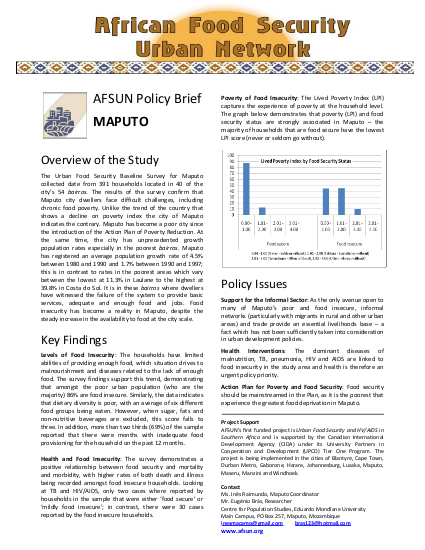
The Urban Food Security Baseline Survey for Maputo collected date from 391 households located in 40 of the city’s 54 bairros. The results of the survey confirm that Maputo city dwellers face difficult challenges, including chronic food poverty. Unlike the trend of the country that shows a decline on poverty index the city of Maputo indicates the contrary. Maputo has become a poor city since the introduction of the Action Plan of Poverty Reduction. At the same time, the city has unprecedented growth population rates especially in the poorest bairros. Maputo has registered an average population growth rate of 4.5% between 1980 and 1990 and 1.7% between 1990 and 1997; this is in contrast to rates in the poorest areas which vary between the lowest at 11.3% in Laulane to the highest at 39.8% in Costa do Sol. It is in these bairros where dwellers have witnessed the failure of the system to provide basic services, adequate and enough food and jobs. Food insecurity has become a reality in Maputo, despite the steady increase in the availability to food at the city scale.
Links
Resource collections
- Locally led humanitarian action
- UN Habitat - Urban Response Collection
- Urban Response - Urban Crisis Preparedness and Risk Reduction
- Urban Response Collection - Community Engagement and Social Cohesion
- Urban Response Collection - Economic Recovery
- Urban Response Collection - Environment and Climate Change
- Urban Response Collection - Housing, Land and Property
- Urban Response Collection - Urban Crisis Response, Recovery and Reconstruction
- Urban Response Collection - Urban Resilience